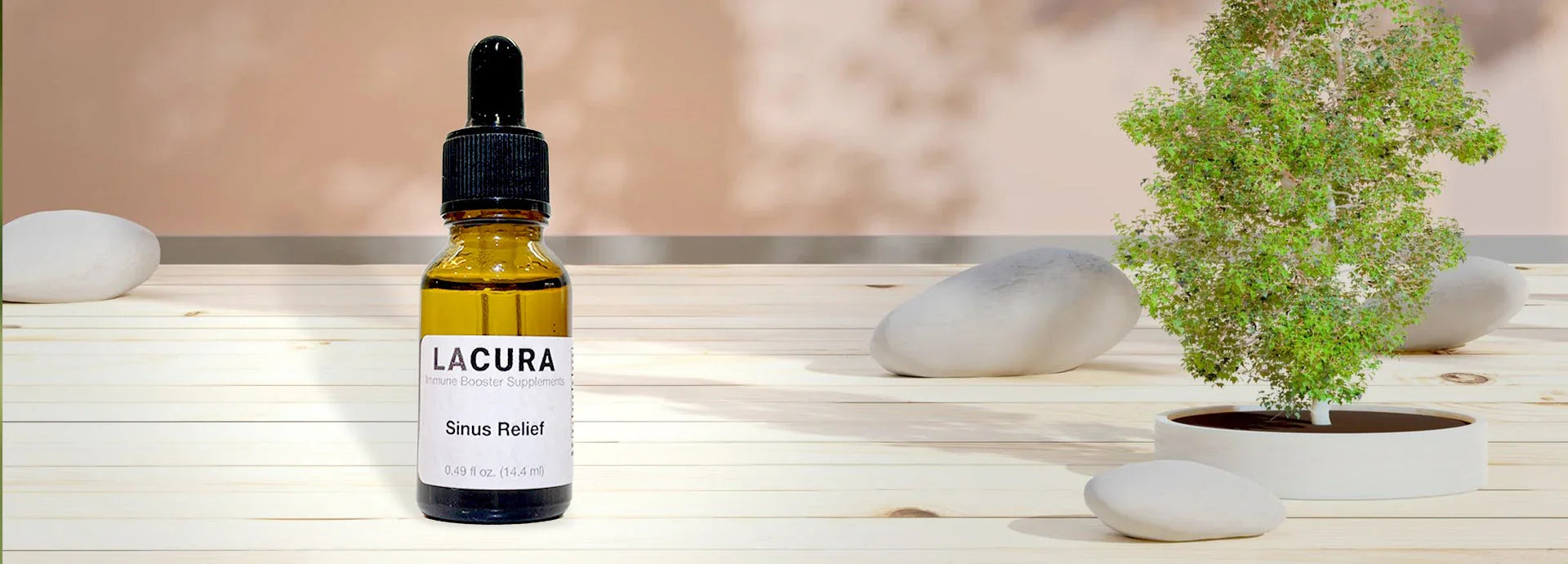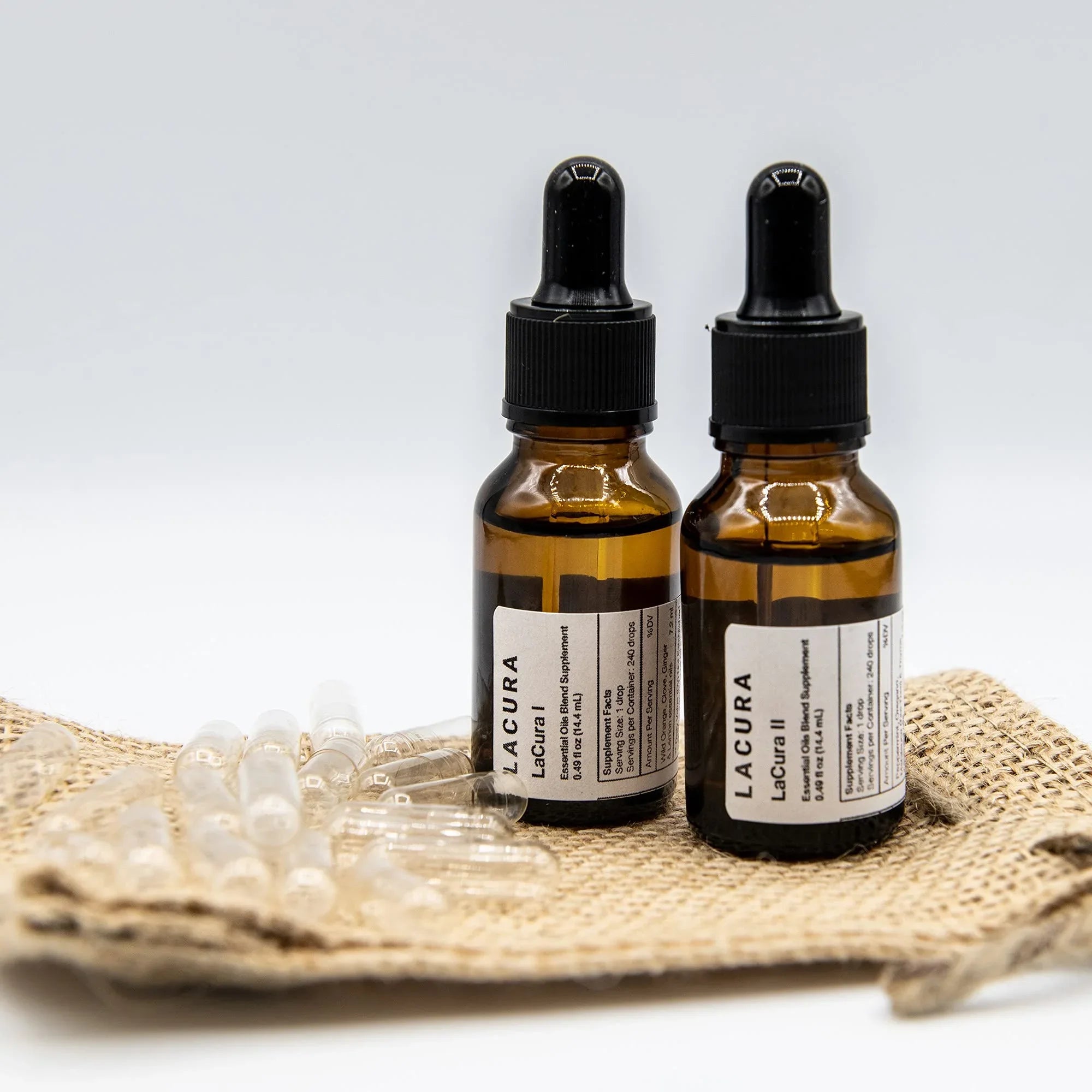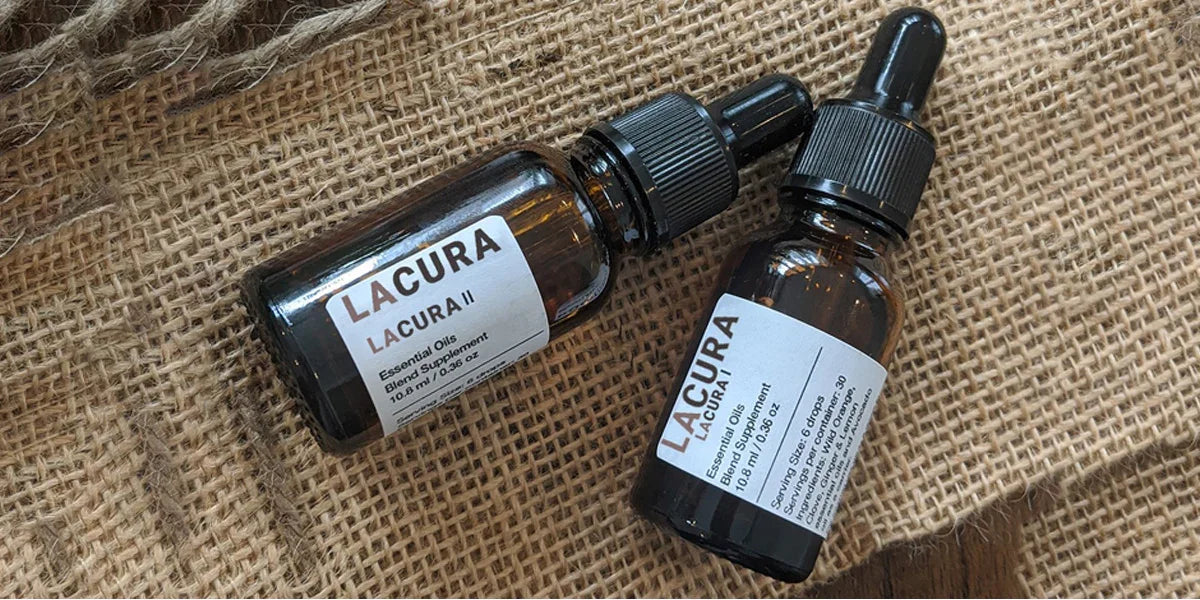Can’t breathe through your nose, feel pressure behind your eyes, and wonder if it’s just a cold—or something more? Are you tired of feeling foggy, congested, and worn out from sinus issues that keep coming back? You’re not alone. Sinus infections (sinusitis) affect millions worldwide each year, often mistaken for colds or seasonal allergies. But when headaches, fatigue, or facial pressure stick around, it’s a sign your body needs more than rest.
At LaCura, we believe real relief starts with understanding the root causes—and supporting your body with clean, effective, natural tools. That’s why we’ve developed high-quality essential oil blends designed specifically for sinus health. Each product is crafted from certified organic, therapeutic-grade plants and backed by evidence-based research (EBR) to ensure safety, purity, and potency. Whether you prefer internal use in vegan capsules or external application with carrier oils, LaCura gives you a trusted path to breathe easier and feel better—naturally.
What is a Sinus Infection?
A sinus infection, medically known as sinusitis, occurs when the tissues lining your sinuses become inflamed or swollen. Your sinuses—hollow cavities behind your forehead, cheeks, nose, and eyes—normally drain mucus that traps dust and germs. But when drainage pathways are blocked by inflammation or infection, mucus builds up, creating an environment for bacteria, viruses, or fungi to multiply.
There are four main pairs of sinuses: frontal, ethmoid, sphenoid, and maxillary. Infection in any of these can disrupt breathing, sleep, concentration, and daily life. Sinusitis may present as a short, acute episode or become a chronic condition lasting months.
Different Types of Sinus Infections
- Acute sinusitis: less than four weeks, usually after a cold; often viral but occasionally bacterial.
- Subacute sinusitis: 4–12 weeks, may indicate incomplete healing.
- Chronic sinusitis: 12+ weeks, often linked to structural issues, allergies, or immune problems.
- Recurrent sinusitis: four or more episodes per year, suggesting underlying predisposing factors.
Sinus infections can be viral, bacterial, or fungal, each with distinct treatment needs.
Sinus Infection vs. Cold
Although symptoms overlap, key differences include:
- Duration: Colds typically resolve in 7–10 days; sinusitis often lingers.
- Symptoms: Sinusitis brings facial pain, thick nasal discharge, and worse congestion.
- Severity: Bacterial sinusitis may require targeted treatment if symptoms persist or worsen.
Symptoms and Signs of a Sinus Infection
Cardinal Symptoms
- Facial pain/pressure (especially forehead, cheeks, eyes), worsened by moving or lying down
- Nasal congestion & thick discharge (yellow, green, or cloudy)
- Reduced smell/taste
Other Common Signs
- Persistent headaches, especially when bending forward
- Fatigue and malaise
- Possible fever
- Dental pain (especially with maxillary sinus involvement)
- Bad breath from trapped mucus
- Post-nasal drip–induced cough, particularly at night
In Children
- Lasting congestion over 10 days
- Irritability, poor sleep, reduced appetite
- Facial discomfort or nighttime cough
When using essential oils for sinus infections in kids, it's crucial to use age-appropriate dilutions. Children's developing systems require special consideration when using essential oils, and proper safety measures must always be followed.
What Causes Sinus Infections?
Environmental Triggers
Allergens (pollen, dust mites, pet dander)
Irritants (smoke, chemicals)
- Dry or cold air
- Frequent colds
Structural Factors
- Deviated septum, nasal polyps
- Narrow sinus openings or enlarged adenoids
- Previous sinus trauma or surgery
Risk Factors
- Age extremes (young children, older adults)
- Overuse of antihistamines/decongestants
- Allergies, asthma, immune disorders, pregnancy
- Smoking or exposure to tobacco smoke
Why Sinus Infections Matter?
If untreated, sinusitis can spread to nearby structures (like the eyes or brain), become chronic, require antibiotics, reduce quality of life, or indicate deeper health issues. Early, holistic management is key.
Effective Treatments for Sinus Infections
A multi-pronged approach combining lifestyle changes, home remedies, and quality essential oils works best.
Lifestyle & Home Remedies
- Hydrate with warm fluids to thin mucus
- Steam therapy with warm air or shower humidity
- Warm compresses on the face to reduce pressure
- Elevate your head during sleep for better drainage
- Anti-inflammatory diet, rich in ginger, turmeric, and omega-3s
- Avoid mucus-stimulating foods (e.g., certain dairy in sensitive individuals)
Essential Oils: Nature’s Ally Against Sinusitis
Essential oils offer antimicrobial, anti-inflammatory, and decongestant benefits. Research supports their use in sinus relief, though advisable to follow safe dilution guidelines and consult professionals.
Top Recommended Oils
- Eucalyptus (eucalyptol): Known to open airways, reduce mucus, and fight microbes; primary ingredient in Myrtol/ELOM-080 used clinically for sinusitis and bronchitis.
- Peppermint (menthol): Clears congestion, provides cooling relief.
- Tea Tree: Broad antimicrobial action; commonly used in respiratory steam.
- Lavender: Anti-inflammatory and calming; may reduce airway irritation.
- Bergamot: Antimicrobial, uplifting; can improve immune response.
- Rosemary: Antibacterial and anti-inflammatory; often used in sinus blends.
LaCura’s Essential Oil Blends
LaCura Sinus Relief Blend combines therapeutic-grade oils—such as eucalyptus, peppermint, lavender, and tea tree—for synergistic effects that clear airways, calm inflammation, and support respiratory health.
How to Use Essential Oils Safely?
- Diffusion or steam inhalation (add a few drops to steaming water or a humidifier)
- Topical application with carrier oil (e.g., fractionated coconut)—patch test before use
- Internal use (capsules) only with certified food-grade oils and guidance
- Safety guidelines: Avoid direct ingestion of undiluted oils; use caution during pregnancy or with young children.
Prevention Tips for Sinus Infections
- Wash hands regularly
- Manage allergies early
- Avoid smoking and pollutants
- Keep nasal passages moist with humidifiers or saline sprays
- Maintain hydration and a healthy diet
- Use essential oils at the early signs
- Treat colds promptly to prevent sinus involvement
Frequently Asked Questions
Are sinus infections contagious?
The infection itself isn’t contagious, but the viral or bacterial trigger can spread via droplets.
How long do they last?
Viral: 7–10 days. Bacterial: 10–14 days. Chronic cases can persist for 12+ weeks.
Can they cause dizziness or fever?
Yes, especially bacterial or severe infections.
Will they go away on their own?
Mild cases often involve self-care. Persistent or worsening symptoms may require medical evaluation.
Why do I keep getting them?
Recurrent infections often result from structural issues, allergies, immune deficiencies, or environmental exposures.
Final Takeaway
Sinus infections can be disruptive, but relief and prevention are within reach. Understanding root causes, making lifestyle adjustments, and using LaCura’s certified organic essential oil blends can support natural healing and long-term sinus health. Explore our range and breathe easier—naturally.








